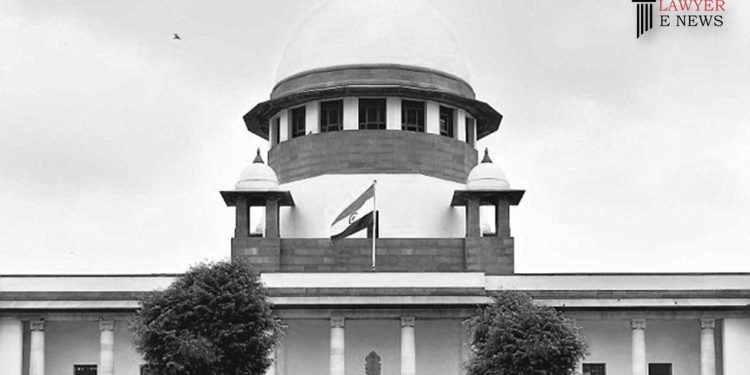-
by Admin
15 February 2026 5:35 AM



In a landmark judgment, the Supreme Court of India today upheld the decision of the High Court in denying bail to Tarun Kumar, the Vice President of Purchases in Shakti Bhog Foods Ltd. (SBFL), in a high-profile case involving serious allegations of financial irregularities and money laundering.
Justice Bela M. Trivedi, in her observation, underscored the gravity of economic offences, stating that they “constitute a class apart and need to be visited with a different approach in the matter of bail.” This decision comes as a significant moment in the ongoing battle against financial crimes in India.
The case, which caught the nation’s attention, involved intricate allegations of money laundering and financial misappropriation in SBFL. Kumar was accused of playing a key role in the fraudulent activities, including the utilization of shell companies for generating fake invoices and siphoning off funds.
In the judgment, the Court meticulously addressed the various dimensions of the case. It highlighted the complex nature of economic offences and the consequent necessity for stringent bail considerations under the Prevention of Money Laundering Act (PMLA). The Court, aligning with the precedent set in earlier rulings, emphasized the need to view economic offences with a severity commensurate with their impact on the national economy.
The Court also noted the challenges in investigating such intricate crimes, stressing the importance of detailed scrutiny to ensure that the guilty are brought to justice while protecting the innocent. “The economic offences have serious repercussions on the development of the country as a whole and thereby posing serious threat to the financial health of the country,” Justice Trivedi observed.
The appeal filed by Tarun Kumar challenged the High Court’s decision to reject his bail application, following his alleged involvement in a money laundering case connected to SBFL. Kumar’s legal team argued for bail, citing delays in the trial and claiming innocence, but the Supreme Court found these arguments insufficient against the backdrop of the severe allegations and the stringent requirements of Section 45 of the PMLA.
This decision is a clear message from the judiciary on its firm stance against economic crimes and its commitment to uphold the integrity of the nation’s financial systems. It sets a precedent for future cases involving allegations of financial misconduct and reinforces the principle that economic offences are to be treated with the utmost seriousness.
Date of Decision: 20th November 2023
TARUN KUMAR VS ASSISTANT DIRECTOR DIRECTORATE OF ENFORCEMENT
